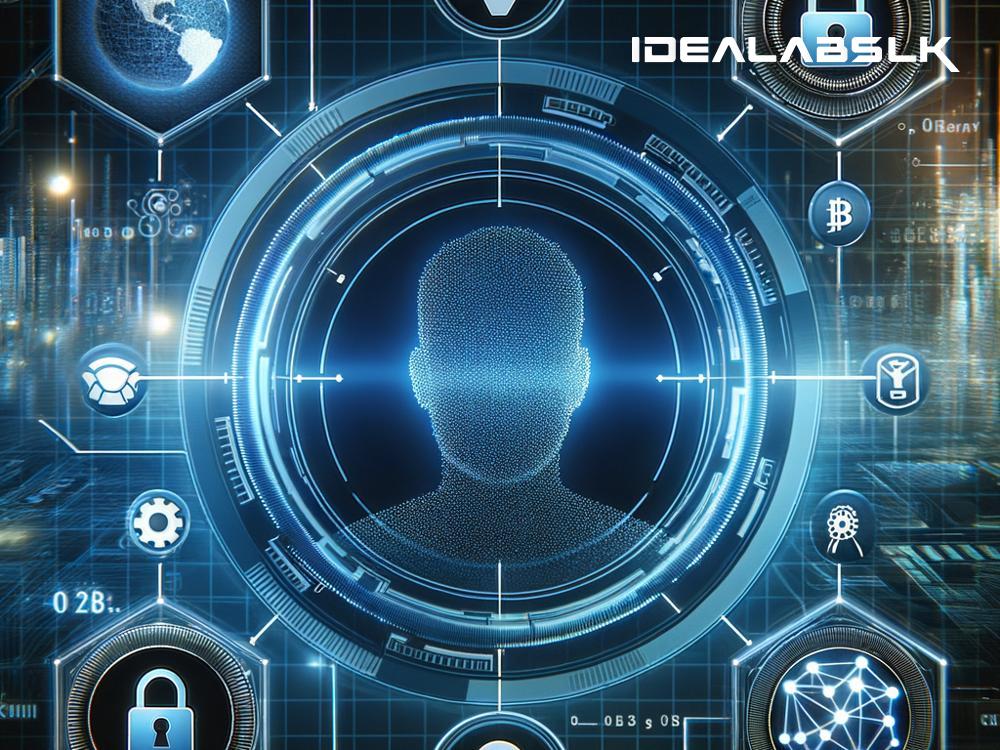The Future of Blockchain in Digital Identity Verification
In our digital age, proving who you are online has become just as important as showing your ID card when you enter a bank. But unlike the ease of showing an ID card, digital identity verification can sometimes feel like jumping over hurdles due to concerns over privacy, security, and fraud. Here’s where blockchain technology, famous for powering cryptocurrencies like Bitcoin, steps in, promising to remodel how we verify identities online. Let’s simplify and explore how blockchain promises a safer and smoother future for digital identity verification.
Unraveling Digital Identity with Blockchain
To understand the future, let’s quickly grasp what blockchain is. Imagine it as a digital ledger that’s not just under one person’s control but spread across several computers. This ledger records transactions in a secure, transparent, and unchangeable way. Applying this to digital identity, blockchain can create a decentralized identity verification system. This means, instead of your personal information being stored in a single database that could be a hacker’s goldmine, your data is dispersed, making it much harder for cybercriminals to exploit.
The Magic of Owning Your Data
The most exciting part about blockchain in digital identity is the control it gives back to you over your personal data. Currently, when you sign up for a service online, you hand over your personal details, often not knowing where your data ends up. With blockchain, you can own and control your digital identity. You decide who gets to see your data, and more importantly, your information can be verified without actually sharing the data itself. It’s like showing your ID card without having to hand it over.
Speed and Trust Go Hand in Hand
Today, digital identity verification can be a slow process, filled with steps to prove you are who you say you are. Blockchain can change this. By having your identity stored on a blockchain, verification is instant. There’s no need to wait because the information has been pre-verified. This speed comes with a bonus – trust. Since blockchain is tamper-proof due to its encryption and decentralized nature, the authenticity of your digital identity is highly reliable, making the process smooth and secure for both parties involved.
Goodbye, Frauds and Hello, Privacy
One of the major challenges in the digital world today is the rampant identity theft and fraud. Blockchain can significantly reduce this. With digital identities on a blockchain, it becomes incredibly difficult for fraudsters to fake identities. Moreover, the aspect of consent in blockchain shines here—you share what you want, maintaining privacy. Your digital footprint becomes your choice, not a consequence of the network you use.
The Road Ahead
While all this sounds promising, the transition to blockchain-based digital identity isn’t happening overnight. Many hurdles exist, from technological challenges to legal and regulatory compliance issues. However, the wheels are in motion. Several countries and companies are experimenting and implementing blockchain-based identity solutions. Estonia, for instance, is a pioneer in digital governance, using blockchain in various public services, including digital identities.
Embracing the Change
As we look into the future, the integration of blockchain in digital identity verification is not just a possibility—it’s inevitable. The benefits it brings in terms of security, privacy, control, and convenience are too significant to ignore. But embracing this change requires effort from governments, businesses, and individuals. Governments need to provide the regulatory framework, businesses must adopt and integrate these technologies, and we, as users, must be ready to adapt and understand the value of controlling our digital identities.
Conclusion
In conclusion, blockchain technology holds the key to a future where digital identity verification is no longer a cumbersome, insecure process but a simple, secure, and empowering one. By giving individuals control over their personal data, reducing fraud, and increasing trust and efficiency, blockchain can fundamentally change our digital interactions. As we move towards this future, staying informed and proactive about these changes can help us navigate the digital age with confidence and security. The journey of blockchain in transforming digital identity verification is just beginning, and it’s a path that leads to a promising and secure digital world for all.

